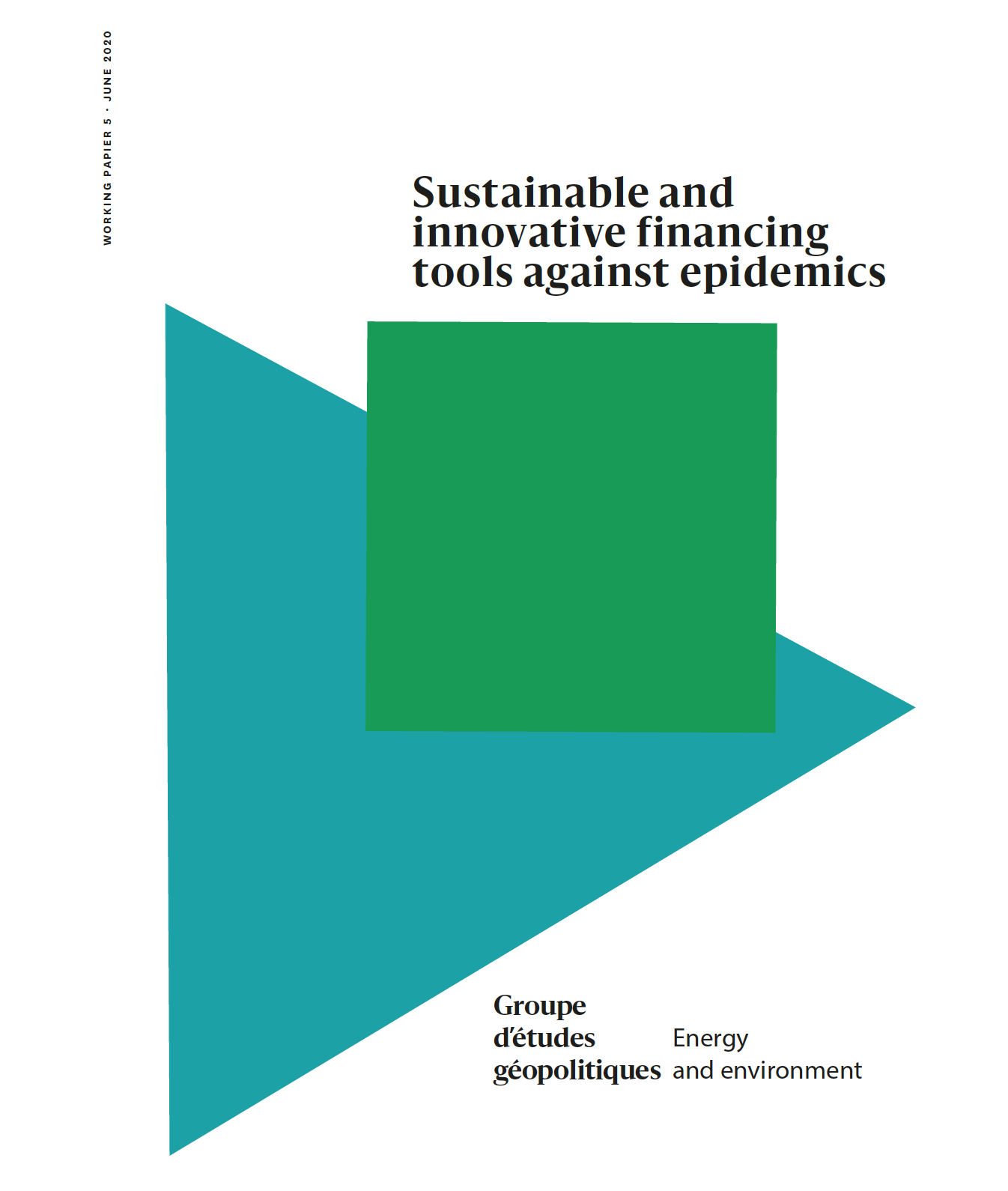Heterogeneous data, knowledge and profiles that rarely meet must be brought together to give shape, during the crisis, to the world that will come after. Groupe d’études géopolitiques releases today, within the framework of the Covid-19 Geopolitical Observatory, its fifth working paper, signed by Pauline Deschryver, with a foreword by Guido Schmidt-Traub, Executive Director UN Sustainable Development Solutions Network.
French version here.
Sustainable and innovative financing tools against epidemics
The COVID-19 pandemic highlighted the urgency of strengthening our societies’ resilience, underscoring the risks of the relationship between human activity and its environment. The health crisis has disrupted both real and market economy, fragilizing millions of people, especially the most vulnerable — in April 2020, the IMF counted 190 billion unemployed and anticipated a 3 % contraction of GDP over the year (IMF,2020). Companies were forced to adopt a survival mode that has shaken societies, questioning the role of public authorities and the place given to social and ecological issues.
Benefiting from a surge of interest from citizens, regulators and a growing number of market players, sustainable financing is an appropriate tool to respond to the various stages of the crisis : supporting massive efforts in terms of access to healthcare and health equipment and keeping the economy afloat ; supporting an exit strategy from the crisis;preventing a new epidemic from breaking out ; and getting prepared to a new threat in a renewed framework. As the aspiration for a societal paradigm shift is growing, could sustainable finance become the norm ?
This working paper provides a critical overview of the instruments of innovative and sustainable finance implemented in response to the COVID-19 crisis, and questions the irrelevance and prospects.
- The magnitude and severity of the COVID-19 epidemic is reflected in the scale of its health, social & economic impact, and in the scope of the responses. Various non traditional funding mechanisms exist to respond to and prevent epidemics.
- Among the range of available impact financing instruments, social bonds are experiencing a certain dynamism with a series of issues dedicated to fighting the pandemic’s socio-economic effects. This trend also reflects an effort in financial innovation at the service of social and sustainable objectives.
- Massive, and sometimes heterodox interventions and the multiplication of pledges by various actors for a new awareness underline an aspiration towards a paradigm shift. A significant effort led by the European Union is underway to integrate climate requirements into the crisis exit plan. The short, medium and long-term consequences of the pandemic crisis vary between countries, justifying differentiated treatments. The crisis is exacerbating interconnections and the need to deploy common and supportive responses.
- The rhetoric remains to be aligned with reality because capital allocated to projects that comply with environmental, social and good governance (ESG) criteria remains marginal. Institutions such as the ECB and the IMF have only belatedly adopted a stance that is more inclined to integrate climate risk.
- Financial markets could move towards a more widespread adoption of green and ESG-type products. During the crisis, the performance of some financial products incorporating these criteria, as well as that of companies with high ratings in these areas, provides a strong incentive. This resilience signals a better adaptation to risk,which is essential in times of extreme volatility.



